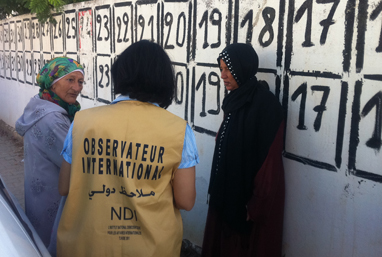Credibility, Engagement, and the Arab Spring
Small Photo
Photo

Journalists, politicians, and techies (and everyone else, it seems) have all been discussing the Arab Spring: from how it got started, to the role technology played, to how it will continue to unfold, these chaotic and exciting events have in high focus - especially as Tunisians and Egyptians head to the polls.
To discuss this transition period, Vital Voices Global Partnership recently hosted Egyptian activist Esraa Abdel Fattah to discuss Egypt's transition period and I was there. In their conversation, Esraa talked about the role of women in Egyptian society, the role of social media, and spoke about her work as an activist.
Fattah highlighted how social media provided youth and activists in Egypt with credibility as citizens could now support their observations with videos and photos. Social media became a tool to share this evidence and thus increase their credibility.
The importance of social media was also highlighted during the NDI Democracy Award Dinner earlier this month where panelists from Bahrain, Egypt, Libya, Syria, and Yemen, discussed the Arab Spring. As one participant commented with a laugh, the role of social media in the Arab Spring was instrumental. This statement is important as it provides a piece of advice to all of us working on democracy programs. By first establishing credibility, you can then start to establish trust and begin creating a society that believes in their democratic institutions and has faith in the ballot box.
As countries like Tunisia and Egypt transition from authoritarian rule and head to the polls, the role of social media will continue to play a role. Through these platforms they can present 'evidence' of their work, provide a space to hear citizens' opinions, and create a connection with constituents. Already we have seen a number of civil society organizations in Tunisia use the platform to interact with citizens, including some with which NDI has been partnering. I-Watch Tunisia has made their Facebook page, I Watch - Tunisia, core in engaging and educating youth, and Egyptian election monitoring coalition Project Rakeeb will be using Facebook and Twitter to share their information about the upcoming polls.
The next few months will continue to be an exciting time for Egypt, Tunisia, and the region - and we are sure social media will continue be part of it.
